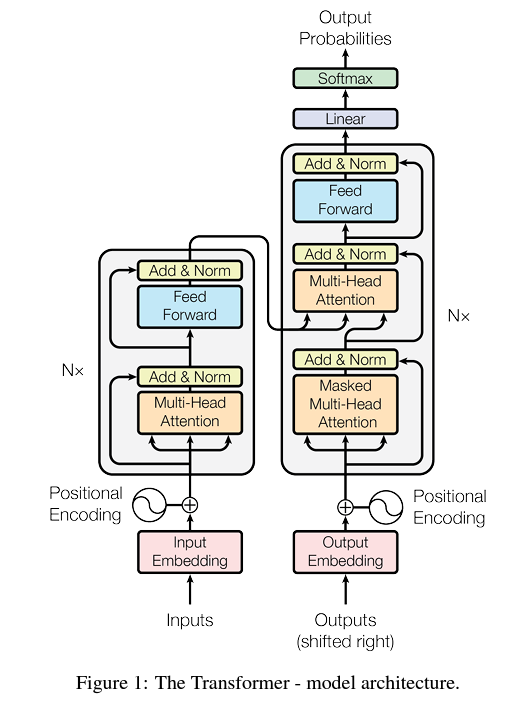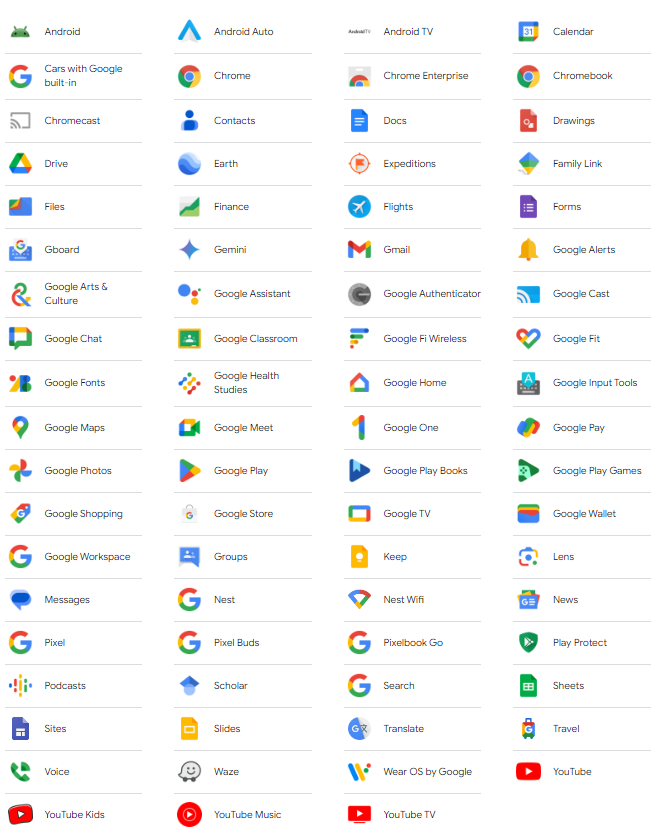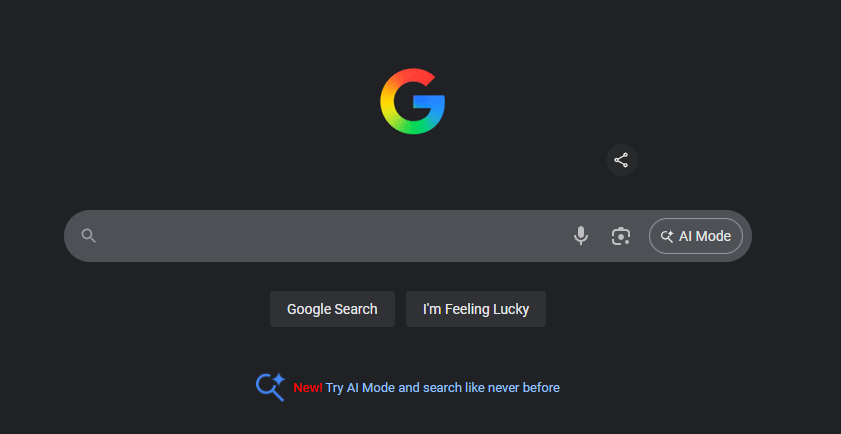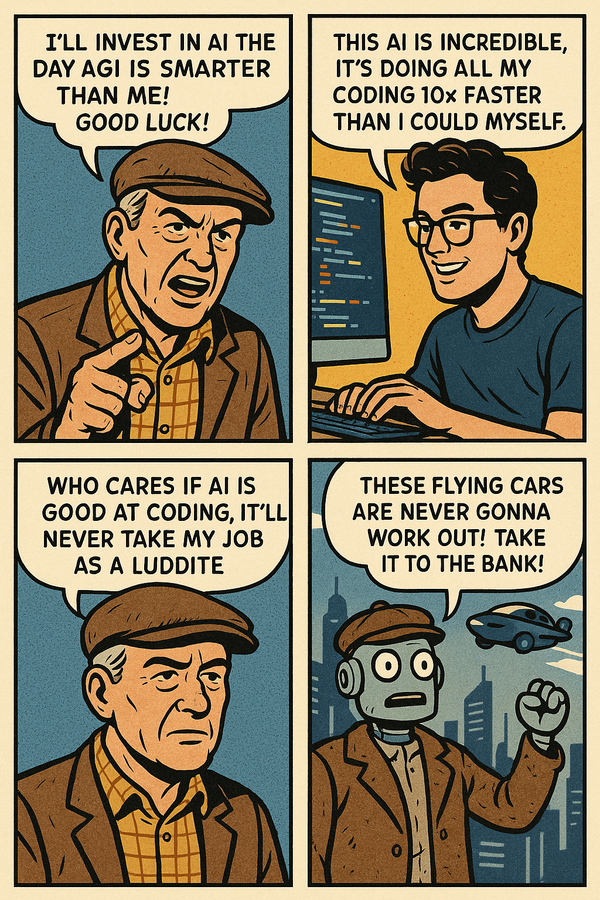Google Is All You Need, Or: The OG AI Company
Google is tied for second (with Meta (META) and Tesla (TSLA)) in our AI Strategy Framework with an AI Rating of 8.1/10. We think Google’s holistic approach, unique platform, vertical integration, massive scale, and deep history and experience with AI will propel the company’s next leg of growth.

This is Part 4 of a series of articles breaking down and ranking the AI strategies of the Magnificent 7.

“Artificial intelligence would be the ultimate version of Google. The ultimate search engine that would understand everything on the Web. It would understand exactly what you wanted, and it would give you the right thing. ” — Larry Page in 2000
Weighing in at $2.12 trillion, Google (GOOG) is smack dab in the middle of the Mag 7 in terms of market cap. We’ve been saying for a while now that Google is the “OG” AI company (OG means “original gangsta” and, according to Google AI, it’s a “slang term for someone who’s incredibly exceptional, authentic, or old-school” ). We say that because Google has been working in AI for longer than just about any other tech company, and researchers at Google were the ones that created the “Transformer” technology that sparked the AI Revolution that today empowers nearly all generative AI. Google introduced the Transformer in its 2017 paper: Attention Is All You Need.
Google is tied for second (with Meta (META) and Tesla (TSLA)) in our AI Strategy Framework with an AI Rating of 8.1/10. We think Google’s holistic approach, unique platform, vertical integration, massive scale, and deep history and experience with AI will propel the company’s next leg of growth. Below we discuss briefly Google’s rich history in AI, its rivalry with OpenAI, and a breakdown of its monetization strategy going forward.

Google’s History In AI
Almost from its very founding, Google has been focused on building machine learning and AI into its products. In 2001, Google used a simple version of machine learning to suggest better spelling for web searches, which obviously improved the quality of the search results. Google’s AI journey continued from there and today it offers one of the most advanced large language models on the market, Gemini. Here’s a timeline of Google’s history in AI, generated by Google Gemini, with some heavy editing and fact-checking by me (AI still has a ways to go before we can rely on it 100%):
Early Days (1990s-2000s):
- 1998: Google is founded, with its advantage coming from its proprietary PageRank algorithm.
- 2001: Machine learning is introduced to improve search accuracy by suggesting better spellings for queries.
- 2005: Google acquires Android, laying the foundation for the development of the most-widely used OS in the world.
- 2006: Translate launches, utilizing machine learning for automatic translation between languages.
Focus on Machine Learning (2000s-2010s):
- 2012: Google Now, a context-aware personal assistant built into the Android OS, is announced, powered by machine learning.
- 2013: Google+ utilizes machine learning for features like photo recognition and social recommendations.
- 2014: Google acquires UK-based AI research lab DeepMind.
- 2015: TensorFlow, a new open-source machine learning framework, is rolled out.
- 2016: Google Assistant is launched; AlphaGo, a DeepMind program, defeats Go champion Lee Sedol, a major milestone in AI development; and Google unveils its custom-designed AI chips, the Tensor Processing Units (TPUs).
- 2017: Google Researchers release “Attention Is All You Need,” introducing the Transformer; Google AI (originally called “Google I/O”) is formed.
- 2018: Google Duplex, an AI for natural language phone calls, is revealed.
- 2020: LaMDA (Language Model for Dialogue Applications) is introduced, showcasing Google’s progress in conversational AI.
Modern Era (2021-Present):
- March 2023: Bard is released, Google’s first publicly available chatbot, five months after OpenAI’s release of GPT-3.5.
- December 2023: Google introduces Gemini, its upgraded multi-modal (text, video, audio, and code) AI model.
- February 2024: Gemini 1.5 comes out, with a significantly longer “context window,” allowing the AI to process up to 1-hour-long videos.
- May 2024: Google introduces the first “AI Phone,” the Pixel 8.
OpenAI Beef
Google’s early lead in AI and near complete dominance of the field for the better part of a decade was the impetus for the founding of OpenAI. Elon Musk and others became concerned that Google would have a monopoly on AI and use it only to increase the profits of Google. Elon Musk often repeats the story of his falling out with his long-time friend Larry Page, which stemmed from a conversation where Page called Musk a “specieist” because Musk was concerned with the dangerous potential of AI. In December 2015, Elon Musk, Peter Thiel, Sam Altman, and others announced over $1 billion in commitments to OpenAI, an organization that promised to be a non-profit, open-source alternative to Google. Musk also helped recruit some of the world’s top AI talent away from Google to help start OpenAI.
Despite its massive lead in AI, Google was more or less lapped by OpenAI when OpenAI released GPT-3.5 in November 2022, and in the mind of many observers, Google has been playing catch-up with OpenAI ever since. ChatGPT took the world by storm, and all of sudden it looked like it might be a viable competitor that could break Google’s near monopoly hold on internet searches. The ChatGPT threat was enough to bring Sergey Brin out of retirement to help Google figure out how to respond to the emergent technology.
Google’s AI Strategy
Google has one of the best potential AI strategies because it can leverage AI to vastly improve its existing ecosystem of products that are already used by billions of people. Below is a listing of all of Google’s various products and services, and it’s truly astounding to see how many products Google offers, and how deeply integrated most of these products are into our ordinary lives.

Google can fairly easily build AI into its existing family of products and monetize that AI through its existing channels, whether that be via advertisements, hardware sales, cloud services, or subscriptions. We view Google’s AI strategy so favorably because it is a holistic one, rather than a piecemeal one. We think AI will be built into every aspect of Google as a company., in comparison to say, Microsoft which feels like AI is more of a bolt-on to its existing lineup of products, especially since Microsfot is partnering with a third party (OpenAI).
Let’s look at a few of the key ways that Google can integrate AI into its existing business, starting with search. Search still makes up 57% of Google’s revenue, so its obviously the most important driver of Google’s AI monetization capability.
To begin, AI simply makes Search better. Google Search overtook early search engines like Yahoo, AOL, and AltaVista because it used a sophisticated algorithm to produce more relevant search results. Google simply needs to use AI to maintain its 90% plus market share in Search as long as possible. People will continue to look for information on the internet, and AI makes Google that much better at helping people find the information they are looking for. As Larry Page saw way back in the year 2000, AI will help create the “ultimate version” of Google, providing internet users with the exact right information at exactly the right moment. Moreover, Google will use AI to offer more targeted advertisements and further drive higher ROIs for its customers.
ChatGPT was released over 18 months ago, and yet Google is still dominating the online search market. We think the fears of ChatGPT eroding Google’s search revenue overnight were largely overblown, as Google’s Search revenue was up 14% YoY in Q1, setting a new Q1 record of $46 billion. That’s not to say that ChatGPT is not a threat to Google at all, but it will take a step change in the quality and usefulness of ChatGPT before people seriously stop using Google to find information.
Perhaps the next most important near-term driver for Google’s AI monetization is its Cloud Services. Like Microsoft and Amazon, Google is building AI-specific data centers that will help its cloud customers train their own AI models and otherwise use AI to improve productivity and efficiency across their enterprises. For example, McDonald’s announced in December that it is incorporating Google Cloud’s AI capabilities into its tech stack to “draw new insights into how equipment is performing, enact solutions that reduce business disruptions, and diminish complexity for crew so restaurant teams can focus on delivering amazing hospitality to customers.” If AI via Google Cloud can help old-world businesses like McDonald’s become more profitable, then we expect Google Cloud to continue to grow rapidly and start to become a real profit center for Google. Google Cloud revenue was up 28% YoY in Q1, and profits were up 370%.
Across its plethora of other products, here are a few of the other ways that we see AI driving increased sales/profits for Google (this is obviously a non-exhaustive list):
- YouTube
- Better video recommendations (especially with YouTube Shorts), which drive more engagement
- Improved ad targeting
- Content creation on the platform goes exponential as the cost to create content with GenAI drops to near-zero
- Potential for interactive content and/or real-time video generation based on user inputs
- Android
- Increased adoption rates, faster refresh cycles, and/or higher average selling prices (ASPs) for hardware as AI is built natively into the OS (similar to our Apple thesis here)
- Android AI drives even higher productivity and efficiency using Android devices, resulting in more engagement with Google products which in turn drives higher ad and subscription revenue across the platform
- Workspace (Gmail, Drive, Sheets, Docs, etc.)
- AI drives higher productivity by producing presentations, drafting documents, scheduling meetings, analyzing spreadsheets, etc. with simple text prompts
- Higher productivity drives further adoption by enterprises, resulting in higher subscription revenue for Google
- AI is able to analyze all of the data stored natively in the cloud to help employees make better decisions and produce better work product
- Miscellaneous
- AI enables better directions from Google Maps by better incorporating real-time traffic/weather data
- Translate enables real-time translation on the device (this could potentially eliminate the need to learn other languages altogether if the technology advances far enough).
- Waymo reaches fully autonomous driving (we think that Tesla gets there first, but this is obviously a potential AI kicker for Google if they get it figured out)
As you can see, Google can incorporate AI across its platform to make all of its products more useful. We think Google will use AI to further empower the end user, which is the “ultimate end goal of the internet” as Cody wrote over 20 years ago. The companies that empower the end user the most are the companies that end up winning the most. And we think Google will be one of those companies that will continue to provide incredibly useful and innovative products for decades to come.




